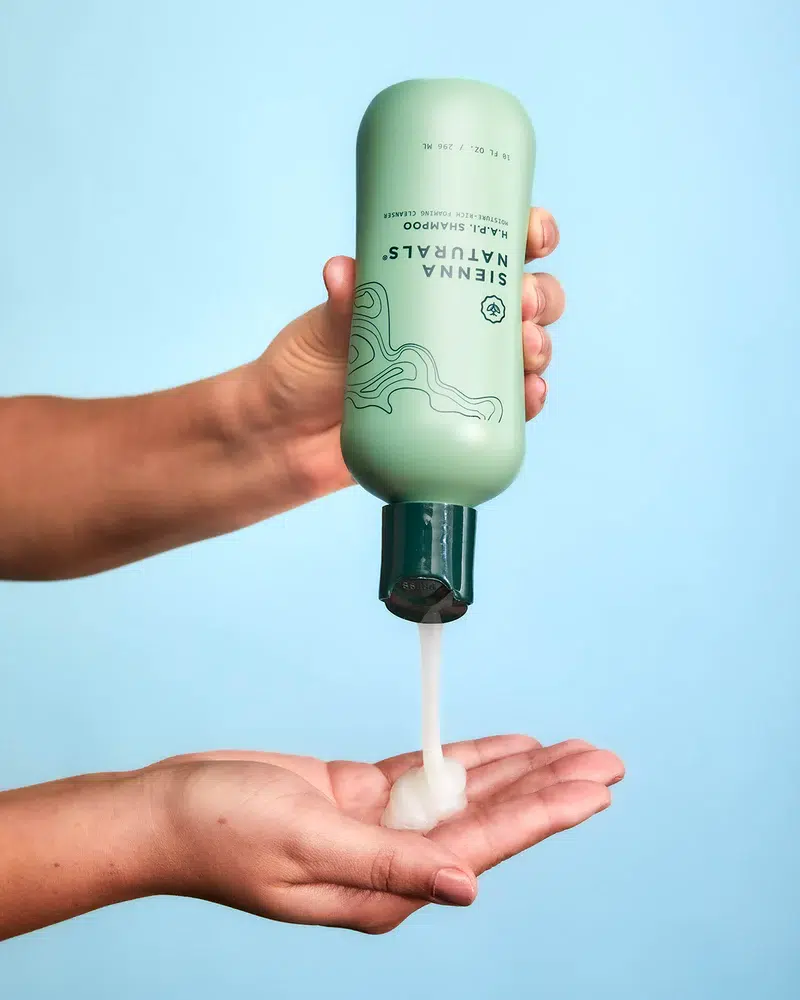
How To Take Care Of Yourself When You Live Alone
As I look over at the dishes piled up in my sink, I smile. Every single one of those is from me — and me alone. There’s no one else to clean up after, other than me and my pets. But then the realization hits: I am the only mess, but I am also the only cleaner. And to be honest, I’m not great at that.
“Then the realization hits: I am the only mess, but I am also the only cleaner.”
I’ve lived alone for a year and a half now since my divorce. It’s been a journey of self-discovery, while I shift from having someone who had my back for those last-minute grocery runs or helping with chopping veggies for dinner. I don’t have a particularly large base of friends here in Los Angeles (I’m a quality-over-quantity gal), so I’ve had to learn how to be — and create — my own support system more than ever before.
But amidst all the finances, the errands, and the endless cycles of laundry, I know I need more than just the bare minimum in order to feel my best. I need the basics, yes, and I also crave moments of rest. But how do you take care of yourself when you’re trying to manage it all on your own?
“The truth is, as I’ve come to learn, you don’t do it all. That’s okay.”
The truth is, as I’ve come to learn, you don’t do it all. That’s okay. You couldn’t even if you tried. Instead, caring for yourself is about finding a balance and creating a life that nurtures you, even in solitude.
And you don’t have to live alone to appreciate these tips, even if you’re partnered, parenting, or rooming with others, there are moments of aloneness where one needs to tend to themselves. Here’s how I’m supporting myself these days, and how you can, too.
1. Make everything slightly more enjoyable.
One of the keys to thriving while living alone is to find joy in the little things. For me, this means making my meals beautiful. I plate them carefully, even when it’s takeout or a frozen dinner. There’s something special about not eating from a disposable container, but instead treating yourself to a nicely presented meal (sitting at the table instead of on the couch is a good move, too!). It’s a small act of self-respect and care that can make a world of difference.
“One of the keys to thriving while living alone is to find joy in the little things.”
I also try to add sensory indulgences in other ways — like, instead of just taking a shower for the sake of cleanliness, I integrate my favorite soaps and shampoos. They don’t have to be super fancy, just something you enjoy slightly more than the default (honestly, I am hooked on a Dial body wash that I purchase every time it’s on sale).
Elevating your every day isn’t always possible, especially if budget is a concern, but even small upgrades can make you feel like you’re not just subsisting, but truly living.
2. Give yourself the gift of your own time.
When you’re on your own, it’s easy for time to slip away unnoticed. That’s why I make a conscious effort to try new things. It could be as simple as taking a different route during my daily walk, experimenting with a new recipe, or attending an open mic night — even if I’m just there to listen. These small adventures keep life interesting and prevent the days from blending into one indistinguishable blur.
“Small adventures keep life interesting and prevent the days from blending into one indistinguishable blur.”
It’s equally important to identify what isn’t working for you. For me, it was gaming. While living with my partner, I used gaming as an escape from reality.
Once I began living alone, I realized how much this habit was costing me in terms of my own wellness and presence in my own life. Don’t get me wrong — I don’t believe that time spent doing something you enjoy is ever wasted. But when you’re using an activity to ignore yourself and your needs, that’s when it becomes problematic.
3. And remember to mark time’s passage.
Living alone can lead to a lack of structure. I often find myself fluttering from one task to the next on autopilot. To combat this, I’ve started keeping a daily tracker of habits I want to work on, which also includes a little space to write down one good thing that happened each day. I do keep a more comprehensive journal, but not quite as regularly as I’d like, so this simple practice helps me remember that time is passing and gives me a sense of progress.
“Write down one good thing that happened each day.”
A work diary can be incredibly helpful too (especially my work from home pals). When you’re alone, you don’t always have those external markers to tell you that you’re progressing, or the validation of someone who sees you day-to-day and recognizes your growth. Tracking your own progress becomes crucial in maintaining a sense of forward momentum.
4. Create some practical strategies to support your self-care.
While the emotional aspects of living alone are crucial, there are also practical considerations to keep in mind. Here are some strategies I’ve found helpful:
- Create a routine. Even if you don’t get it perfect every day, try to have a few grounding habits and routines in your week that make life easier for yourself. I like to unload my dishwasher while the coffee is brewing, which is a small act of self-care for future Emily who can’t stand the dishes piling up.
- Plan your meals, but be kind to yourself. Taking back charge of my meals was initially daunting, but it’s become one of the most rewarding aspects of living alone. I am the decider of every item of food in my household! But I can’t always cook everything from scratch and maintain a well-balanced social and work life — so be kind, and allow for occasional frozen meals or takeout.
- Get in touch with your spending. I am notoriously bad at creating budgets, but I do pop in to my accounts occasionally to monitor my progress, and to see where my money is flowing. Am I spending in alignment with my values?
- Have a support network. Social connections are so important when you’re on your own — even if it’s just from a safety perspective. I’ve had friends help me clean my space when I’m feeling low, or make me dinner when I’m tired. I have done, and will do the same for them when the time comes. We’ve all got to support one another.
- Know when to DIY and when to get help. I am a big fan of DIYing basic home maintenance, but am realizing, again, that I am only one person. If I have wiggle room in my spending, I try to outsource things that might take me a long amount of time, and spend those re-gained hours resting or indulging one of my hobbies.
5. But most importantly, let yourself be you.
The biggest lesson I’ve learned in my journey of living alone is the importance of giving yourself grace. Some nights, you might stay up until 2 a.m., but treat yourself to a joyous 5-course meal. Other nights, you might microwave cheese between two flour tortillas, call it a quesadilla, and be in bed by 9:30 p.m.. No single day is a reflection of your worth as a person, although each day is a new opportunity to care for yourself.
“No single day is a reflection of your worth as a person, although each day is a new opportunity to care for yourself.”
It’s crucial to remember that self-care isn’t synonymous with self-improvement. You don’t have to push ahead or make progress to deserve basic things like sleep or rest. ✨
There’s a pervasive pressure in society for people to be constantly bettering themselves, and I feel it particularly strongly in this single, childless season of my life. “Oh you must have so much free time,” folks will tell me. I don’t have to take the kids to school, sure, but also I don’t have the same resources as a household with multiple people and incomes. While I do want to better myself in general, I don’t want to force myself forward at the cost of my mental or physical health — I want to rest in the ways that are best for me.
That goes for all of us, honestly: Sometimes, you just need to let yourself be. The pressure to better yourself every single day is unrealistic and can be harmful. We are all allowed to have our bad days, regardless of our living situation or relationship status. And we all deserve better days, even if we face them alone.
Emily McGowan is the Editorial Director at The Good Trade. She studied Creative Writing and Business at Indiana University, and has over ten years of experience as a writer and editor in sustainability and lifestyle spaces. Since 2017, she’s been discovering and reviewing the top sustainable home, fashion, beauty, and wellness products so readers can make their most informed decisions. Her editorial work has been recognized by major publications like The New York Times and BBC Worklife. You can usually find her in her colorful Los Angeles apartment journaling, caring for her rabbits and cat, or gaming. Say hi on Instagram!




